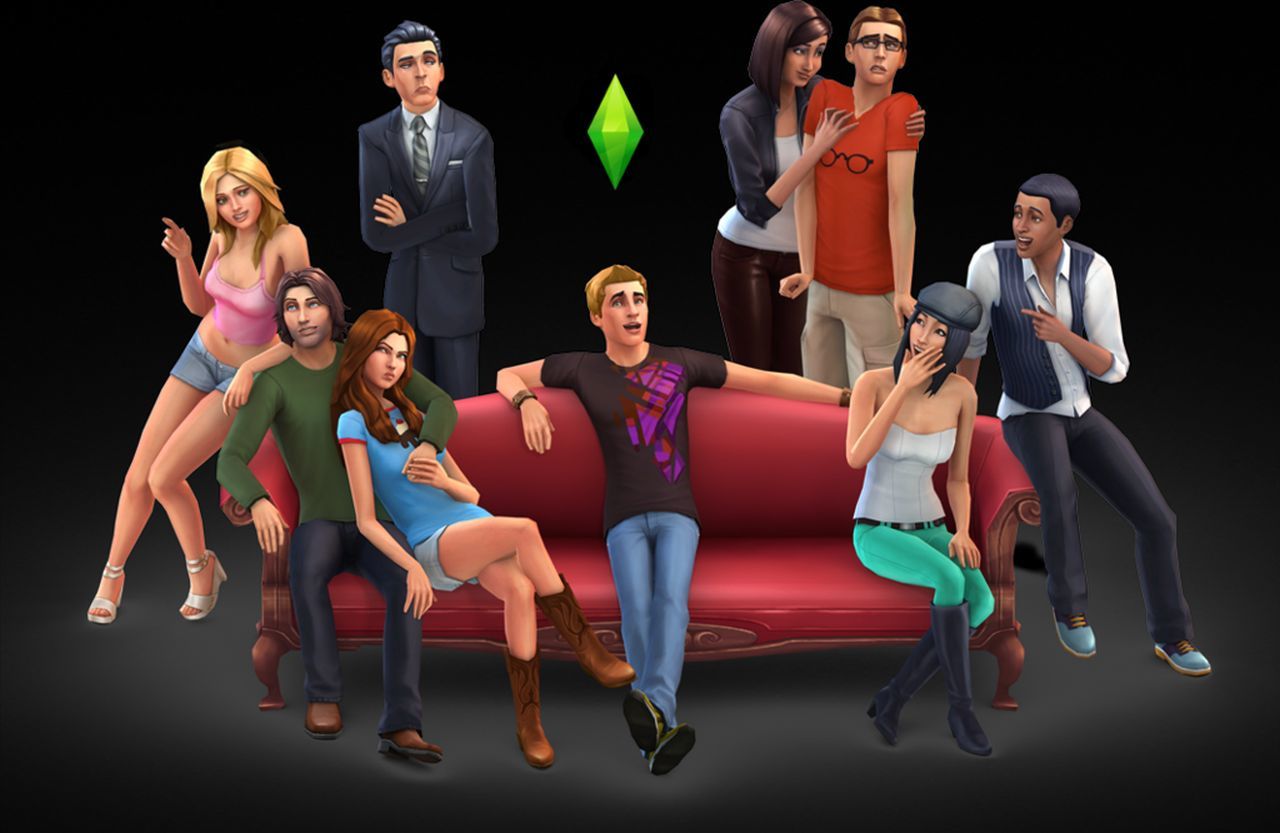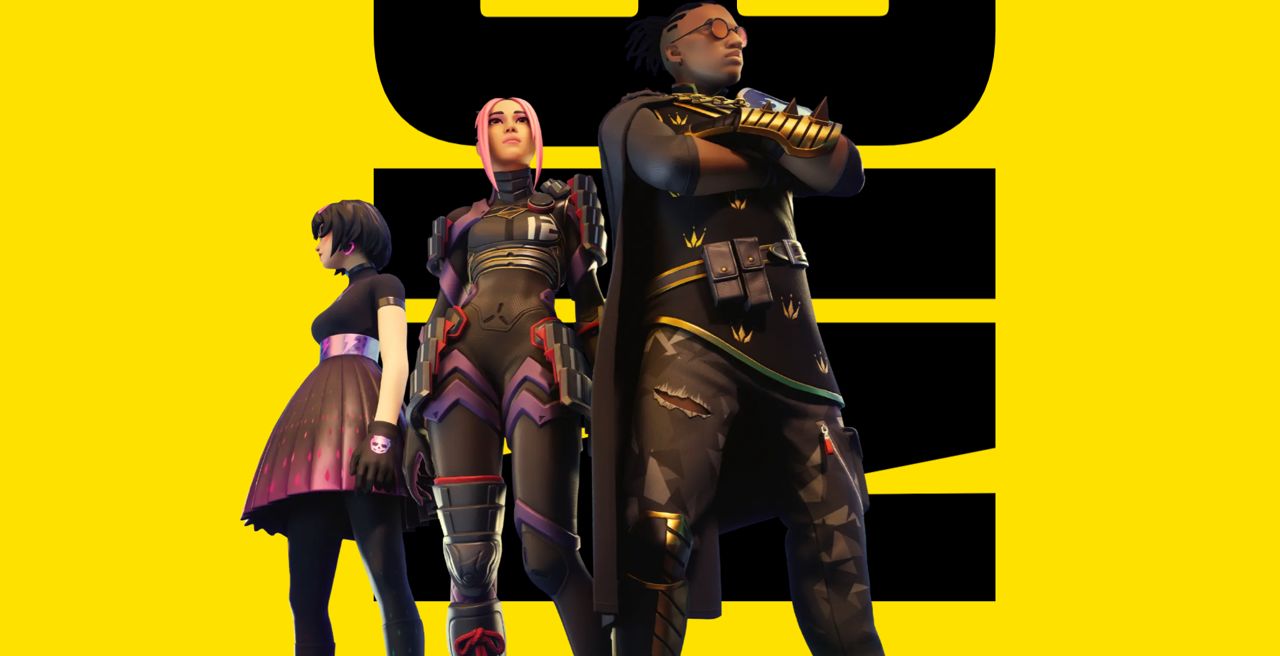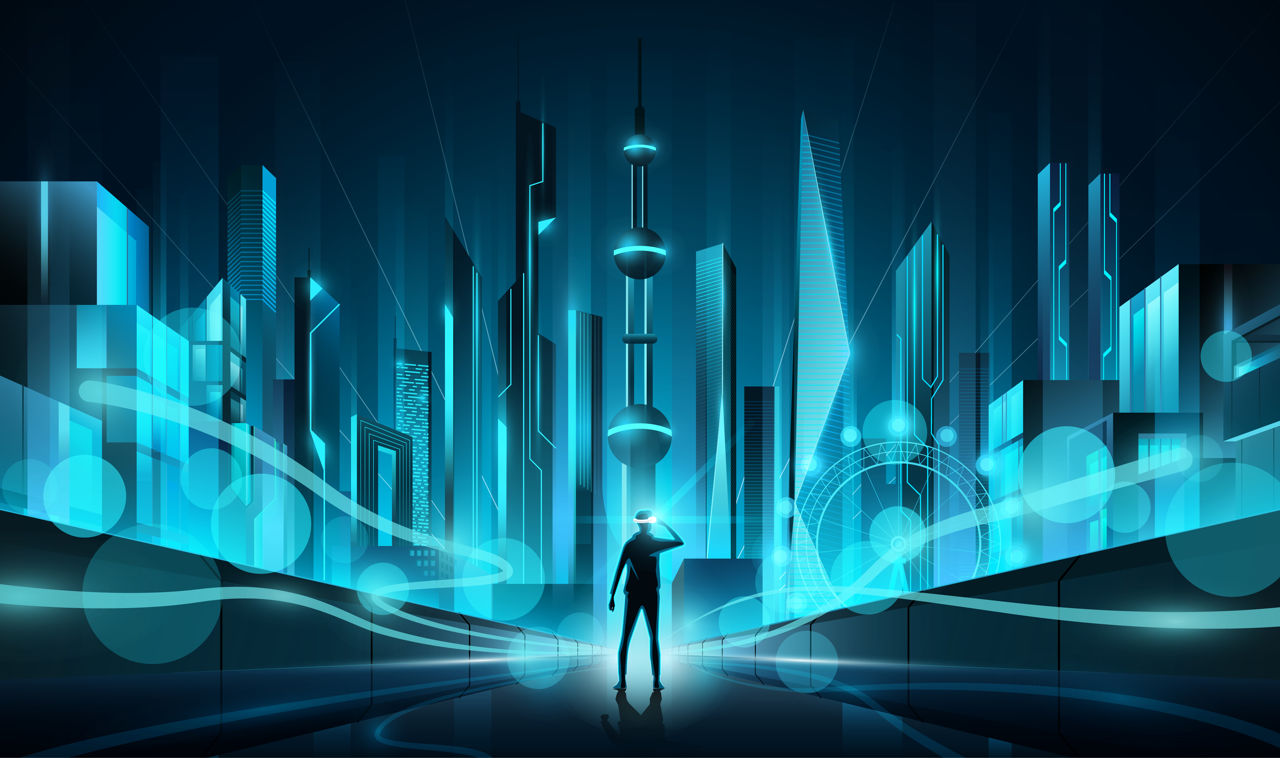Exploring identity in the metaverse
As the metaverse expands, so do the possibilities for self-expression. Yuliana Safari, Associate Director, Marketing at R/GA, argues that, if the metaverse truly becomes a utopia of self-expression, not only will taboos be broken in this nascent reality, they will transcend to the real world, helping to create meaningful progress.
The metaverse is promised to be a space owned by all, a meritocracy free of cultural and gender constructs.
It's a place where anything can go, where you will have sovereignty over your digital soul, a place that will enable us to explore our identities and break free of taboos that have reigned harm on our society for far too long.
It’s hard to find your ‘authentic self’ in a society weaved with many racial and gender constructs.
But identity is incredibly nuanced. Who we are or, more accurately, who we think we are, is a summation of our upbringing, beliefs, experiences and interests, with varying degrees of impact from social and cultural constructs. Psychologist Esther Perel asserts that the dominant driver in western society is the “pressure to discover and become your authentic self”.
Yet, it’s hard to find your ‘authentic self’ in a society weaved with many racial and gender constructs. How do we know what is truly us?

Above: The Government Office for Science for the UK suggests that people don't just have one identity, but three, shifting characters depending on environments.
Modern identity
Not finding ‘ourselves’ is often seen to come at the cost of finding true happiness. Sociologist Zygmunt Bauman famously shared that “there is always a suspicion... that a vital obligation to one’s own authentic self has not been met or that some chances of unknown happiness completely different from any happiness experienced before have not been taken up in time and are bound to be lost forever if they continue to be neglected.”
To complicate our understanding of identity further, several studies indicate we don’t have ‘one-self’ but, instead, have multiple selves that serve different needs. The logic is that we’re multi-dimensional beings with multiple selves that suit different situations. The Government Office for Science for the UK claims we have three identities: social, biographical, and biometric.
Traditional notions of identities are too narrow and will likely become less meaningful over time.
We shift character depending on our environments, from work to drinks with friends. In China, brands recognise that people play multiple roles in their daily lives and are creating multi-faced profiles of their consumers to understand their needs better. And author, Stephen Covey, encourages people to recognise and plan around the multiple roles people play in their daily lives in his book, The 7 Habits of Highly Effective People.
When you put it in the context of our increasing awareness of the complexities of sexual and gender identity, it stands to reason that traditional notions of identities are too narrow and will likely become less meaningful over time.

Above: Some gamers feel an emotional connection to the families they've created in video game, The Sims.
Where digital and physical souls collide
In the 1950s, the golden era of television, a new social phenomenon developed; parasocial relationships. Thanks to mass media, people began to create one-sided bonds with their favourite actors, some even seeing them as friends. We're now seeing this relationship spectacle in gaming and virtual worlds, where players develop connections with their avatars, commonly known as player-avatar relationships (PAR).
Studies have found that people see avatars as representations of their ideal selves, or as a way to explore areas of their identity that they are currently unable to, or are restricted from doing [in the real world]. Virtual bonds can manifest in many ways, where some spend hours customising a character in Fallout 76 that can sometimes be nearly identical to themselves, maybe an augmentation or even an entirely different version. At the same time, others feel an intense emotional connection to the families they've created in The Sims.
The mandate for brands will be to provide a plethora of avatar options to allow people to carve out their true, virtual selves.
Now that we've established the bonds players are experiencing in gaming, what makes the metaverse poised to unwind modern identity? Two things. First, is the sovereignty of your avatar in multiple worlds. We'll be able to take our digital wear and coin from one world to another, and the more people spend time in the metaverse, the more our physical and digital selves will diverge and blur.
Our avatars will become central to how we express ourselves, intensifying bonds. The mandate for brands will be to provide a plethora of avatar options to allow people to carve out their true, virtual selves. Some are already fully aware of this requirement. Meta introduced inclusive avatar options, from cochlear implants to wheelchairs. Roblox, which sees self-identity as a crucial pillar of the metaverse, routinely provides additional customisation options to their block figures. And Fortnite allows people to take new routes of expression, from animal to alien skins.
Second, the metaverse is a place where anything can go, where societal constructs don't have as wide an opportunity to limit ones self-expression. This immersive world is a chance to rewire our views on gender and self-expression, which begs the question; what does that mean for some of culture’s most sacred topics?

Above: Video game Fortnite allows people to express themselves through their online avatars.
Culture’s catch-22
Meant to be a societal shield from inappropriate topics and behaviours, taboos have a habit of repressing progress in modern-day society, a real catch-22. Issues like reproductive rights, acne, mental health and menstruation have no business being treated as unmentionables, yet they are in many parts of the world.
Several D2C brands have gotten into the business of normalising taboo products, from Quanna striving to shatter sexual stigma to thinx breaking down period shame. Yet, breaking a long-held taboo is a slow churn. Case in point: for all the years behind the pro-period movement, I came across a menstrual ad last week with no mention of the forbidden word ‘period.’ Some of this can be blamed on advertising’s content restrictions hampering stories for taboo-breaking brands with brands which sell outright taboo items and cannabis are forbidden from advertising their products through conventional channels.
Meant to be a societal shield from inappropriate topics and behaviours, taboos have a habit of repressing progress in modern-day society.
Another area throwing more flame to the taboo fire is the internet. Most online spaces are plagued by a lack of trust, where algorithms monetise attention rather than creating spaces to nurture healthy connections. While a number of creators are breaking down harmful stigmas in some corners of the internet, progress here tends to be slow.
Here’s where the metaverse comes in. Communities are the backbone of the metaverse, where the principles of psychological safety, authenticity and creativity drive and allow people to be themselves and discuss complex subjects without fear of shame. The metaverse is already hailed as the new hope for mental health, and LGBTQ communities are carving out spaces to live their virtual lives free of stigma.
If the metaverse truly becomes a self-expression utopia for all, not only will taboos be broken in this nascent reality, they will transcend to the real world, helping to create meaningful progress.

Above: The metaverse will allow us to explore new pathways of our identities.
What’s next?
One school of thought suggests that we will eventually all have an avatar, like we all have phones and social media accounts. So, one has to question the extent of the metaverse's impact on identity:
The industrial revolution brought about the rise of individualism in the West. Now, the metaverse will allow us to explore new pathways of our identities.
● Will we be more self-aware and authentic in our digital lives?
● How will the metaverse impact self-expression and culture in the real world?
● Could we end up in a world where our digital self is simply an extension of our physical body?
● Will brands take on new forms of identities in the metaverse, and how will they enable us to be more self-aware and authentic in our digital lives?
While this is uncharted territory, we do know that every time there's a far-reaching systematic change in our world, there is a butterfly effect in how we understand ourselves and the concept of identity. The industrial revolution brought about the rise of individualism in the West. Social media rewired how our brains function. Now, the metaverse will allow us to explore new pathways of our identities.
Where social media permutates the self-idealised self, the metaverse will encourage authentic self-expression.
)




 + membership
+ membership








